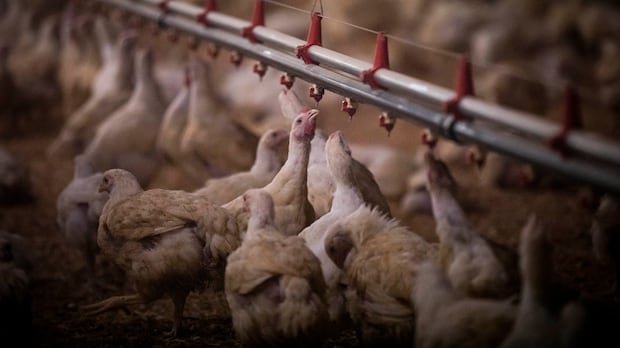Commercial poultry farmers in British Columbia have been instructed to bring their birds indoors for the duration of the avian influenza season. Dr. Theresa Burns, B.C.’s Chief Veterinary Officer, issued an indoor housing order on September 10 in response to avian influenza outbreaks on farms in Alberta.
Following Dr. Burns’ directive, the B.C. Poultry Association opted to enforce Red Biosecurity Protocols, which involve heightened sanitation practices and the use of protective gear. Shawn Hall, director of the B.C. poultry industry’s emergency operations center, emphasized the farmers’ commitment to safeguarding their flocks and local food supply.
As migratory birds like geese head south, the risk of avian influenza spreading to chicken and turkey farms escalates. Last year, between October and January, 81 poultry farms in B.C. reported avian influenza cases, according to Hall.
All commercial farmers with production authorization must adhere to the mandated orders and protocols. These regulations include stringent biosecurity measures such as wearing personal protective equipment and thoroughly sanitizing equipment and vehicles.
While implementing these measures can be inconvenient, farmers prioritize their flock’s safety and comply with the standards set by the Canadian Food Inspection Agency (CFIA). Hall highlighted the farmers’ investments in specialized ventilation systems to prevent the entry of viruses carried by wild animals.
In the event of an infection within a commercial flock, all birds must be culled in accordance with CFIA guidelines. These precautions have been in place seasonally since 2022 when the H5N1 strain of avian influenza was first identified in British Columbia during a global outbreak.
Hall underscored the role of migratory birds like ducks in transmitting the virus during their journeys. To mitigate the risk, farmers must ensure there is no standing water on their properties where migrating waterfowl could land.
Notably, people are urged to refrain from feeding wild ducks to avoid potential infection transmission. Chantelle Abma from Ducks Unlimited Canada cautioned that waterfowl, including ducks, may carry and spread avian influenza without displaying symptoms, posing a risk to humans, pets, and livestock.
To prevent disease spread, Abma encouraged reporting sick or deceased wild birds to B.C.’s wild bird reporting line. Maintaining caution around waterfowl and allowing them to remain wild can help minimize the risk of disease transmission and protect both wildlife and humans.


